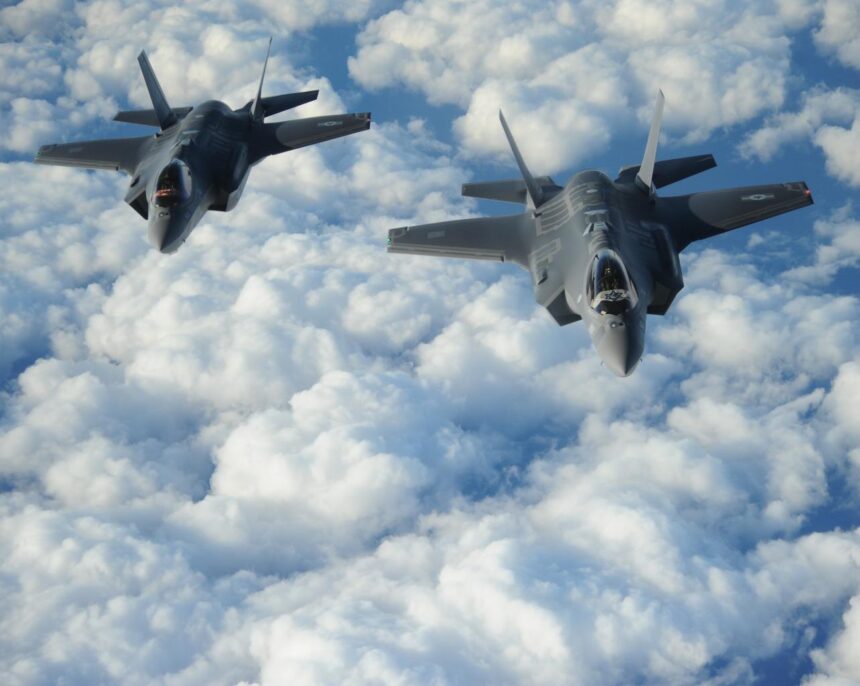The Israel Defense Forces (IDF) have reportedly achieved a stunning victory, striking Iran’s nuclear and missile facilities in a series of preemptive attacks hailed as a triumph of military precision. Social media erupts with celebration, and world leaders applaud Israel’s resolve.
Yet, beneath this veneer of success lies a darker truth. This is not a spontaneous act of self-preservation—it is a meticulously scripted operation, decades in the making, orchestrated by a coalition of the United States, Saudi Arabia, and Gulf allies. Israel is being lured into a trap; the cost – its sovereignty.
Look closer at the chatter online, and a pattern emerges: Saudi Arabia has “fortuitously” gained an opening to align with Israel against Iran. This is no coincidence. As reported, the Israeli strikes have crippled Iran’s military capabilities, inadvertently—or perhaps intentionally—paving the way for Saudi Arabia to inherit dominance in the region.
President Trump’s recent visit to Riyadh was not a casual stopover; it was a strategic huddle to advance this very agenda. Israel’s victories are being leveraged to bolster a coalition that is intended to undermine its independence, with Saudi Arabia emerging as the true beneficiary.
The Iranian Threat: Myth and Manipulation
For over 30 years, Iran has been painted as the Middle East’s existential menace, perpetually “months away” from a nuclear weapon. News cycles have relentlessly hyped this threat, yet evidence often contradicts the hysteria.
For over three decades, Iran has been painted as the Middle East’s existential menace, perpetually “months away” from a nuclear weapon. In 1984, Jane’s Defence Weekly cited West German intelligence claiming Iran’s bomb production was “entering its final stages,” the earliest warning of imminent capability, though U.S. Senator Alan Cranston estimated seven years (The Christian Science Monitor, November 8, 2011).
Yet, a March 2025 U.S. Director of National Intelligence report states Iran “is not building a nuclear weapon,” casting doubt on the urgency of Israel’s recent strikes. This persistent fearmongering, rooted in conflicting intelligence, suggests a manufactured threat to justify a geopolitical agenda favoring Saudi Arabia’s rise.
Could the warnings reflect a program stalled by covert sabotage? Israel’s history of operations—such as the 2010 Stuxnet virus, widely attributed to Israel and the U.S., which crippled Iran’s centrifuges, or assassinations of nuclear scientists linked to Mossad—may have delayed Iran’s progress, keeping the “imminent” threat at bay. If Iran’s nuclear program is not the imminent danger claimed, what justifies this escalation?
The answer lies in a broader geopolitical chess game. Israel is a tool in a “dirty agreement” between the United States and Saudi Arabia, designed not to protect Israel but to redraw the regional map. The strikes have decimated Iran’s ballistic missile arsenal and nuclear infrastructure, weakening a key Saudi rival. This creates a power vacuum that Saudi Arabia is poised to fill, using its oil wealth and strategic positioning to cement its influence. Israel’s actions, while lauded at home, serve a coalition intent on establishing a Middle Eastern order where Saudi interests reign supreme.
Saudi Arabia’s Quiet Ascendancy
Saudi Arabia has long seen Iran as its chief adversary. In 2018, Crown Prince Mohammed bin Salman compared Iran’s Supreme Leader to Hitler, a stark signal of Riyadh’s hostility. Yet, beneath public enmity, Saudi strategy unfolds with precision. As noted previously, Saudi Arabia has wielded its oil wealth to outmaneuver regional powers like Turkey and Egypt, securing influence through economic leverage and diplomatic finesse. While Turkey grapples with a 52% inflation rate and Egypt faces a $30 billion external financing gap, Saudi Arabia’s $36 billion investment in its Vision 2030 projects—including Neom—demonstrates its financial clout.
Israel’s strikes on Iran align perfectly with this strategy. By neutralizing Iran’s military threat, Israel has cleared the way for Saudi Arabia to dominate the region’s power dynamics. Trump’s glowing praise of Israel’s “decisive action” and his call for Iran’s “unconditional surrender” underscore the coalition’s hand. Why is it Trump, not Netanyahu, setting terms? Because this was a U.S.-Saudi operation, with Israel as the front-line executor. The flight corridor for Israeli jets was secured by American influence, not Israeli initiative, revealing the depth of this orchestrated effort.
Saudi Arabia’s Bid to Seize Jerusalem
Imagine this: the Crown Prince of Saudi Arabia strides onto the Temple Mount beside an obsequious Israeli official, proclaiming a new era for the site. The Waqf, the Islamic trust overseeing Al-Aqsa Mosque, is sidelined, and Saudi Arabia—custodian of Mecca and Medina—assumes control. Jerusalem ceases to be Israel’s undivided capital. This is not fantasy; it is the endgame of the coalition’s plan.
Any shift in Temple Mount governance would upend Israel’s national identity. Saudi Arabia’s growing sway, amplified by its economic dominance, makes this scenario plausible. As noted, Saudi Arabia’s oil wealth has already tilted the regional balance. Control of the Temple Mount would cement Riyadh’s status as a religious and geopolitical power, at the Jewish State’s expense.
A Scripted War and Complicit Leaders
The Simchat Torah attacks were no surprise assault. They were a calculated trigger, greenlit by Israel’s leadership to stoke war fever and justify extraterritorial strikes. Israeli soldiers are dying not for their nation’s survival, but to eliminate Saudi Arabia’s foes. This campaign also lays groundwork for a CIA-backed figure—the son of Iran’s deposed Shah—to be installed, aligning with U.S.-Saudi ambitions to reshape the region.
Israel’s leaders and rabbis stand mute, complicit in a decades-long propaganda campaign. The Jewish public has been conditioned to fear an ever-looming Iranian nuclear threat, yet the evidence remains elusive. Meanwhile, Saudi Arabia reaps the rewards, its oil wealth quietly sidelining competitors. Riyadh’s economic edge ensures it emerges as the region’s linchpin, while Israel obliviously bears the brunt of the conflict.
The Cost of Stupidity
This is more than geopolitics—it is a spiritual reckoning.
Isaiah promised redemption “in its time, I will hasten it,” contingent on the Jewish people rejecting the “stupidity of their hearts.” That stupidity today is blind trust in foreign allies and military bravado over divine reliance.
Saudi Arabia’s rise, fueled by oil wealth and strategic cunning, exposes the peril of this path. Israel risks losing its soul to a coalition that prioritizes Riyadh’s ascendancy over Jewish sovereignty.
Our Future in the Balance
Israel teeters on the edge. The IDF’s triumphs mask a treacherous reality. The Jewish people must reclaim their destiny, piercing the illusion that this coalition is their shield. It is their trap.
This is a scam, crafted to unravel the Jewish nation—unless its people awaken.




